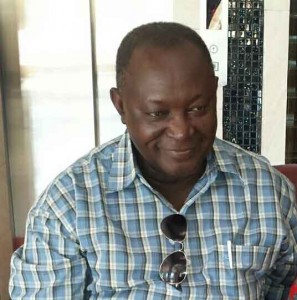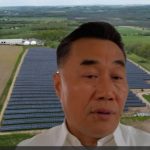COP 22- Bangladesh: Beyond grid connectivity
A delegation of Tanzanians came to visit Bangladesh recently. Basically, it was for learning how to accelerate access to energy for poor people in the rural areas without having to link them to the national grid.
By Deodatus Mfugale
September 28 2016
Rural: access to energy
Two things are known to change quickly the lives of the rural population and lift them out of poverty. One of them is the provision of electricity. When poor families are provided with electricity the quality of life improves for the entire family as well as for individual members of the family.
Some research in Bangladesh, for example, has shown that the children’s average study time had increased by about six percent and their absence from school due to sickness reduced by 20 percent with access to electricity . Small retail businesses run by poor families had also shown to rise by eight percent due to provision of electricity.
The challenge however, is to provide electricity to many people within a short time so as to scale up poverty reduction at family level. Many developing countries tend to take the path of connecting rural families to the national grid, with the result that only a few people are connected after a long time and usually at a high cost.
However some countries have shown that small off-grid systems are the answer when the goal is to supply many poor families with electricity within a short time.
“Some people think that supplying many rural families with electricity from a 100 percent renewable source is abstract,” explained recently Mr. Dipal Barua Founder and Chairman of Bright Green Energy Foundation (BGEF) of Bangladesh.
“Yet this is feasible if we aim at small and simple solar systems that can supply individual families enough power to light their homes and provide other simple services like charging mobile phones,” he added.
Between 2010 and 2014, 3.5 million households had for the first time been installed with simple solar systems which benefited about 15 million people. Since then about 50,000 families install new solar systems of between 10Watts and 135Watts every month. The target is to provide electricity from simple solar systems to six million households by end of next year.
Linking to Tanzania
For people in the rural areas having electricity from non-grid sources is a leap that takes them to new levels of development. Otherwise they would have to wait for decades to be connected to power supply from the national grid.
More importantly, such a family would stop the use of wood for lighting and only use it for cooking. This is an important step towards reducing health impacts associated with the use of energy from wood for cooking and lighting.
According to the World Energy Outlook 2014, 36 million Tanzanians (about 76 percent) have no access to electricity to light their homes.
Failure to access electricity has also led to poor health care delivery; it has stalled economic development through agriculture and industrial production.
In order to promote energy access to poor communities, the United Nations Organisation established the Sustainable Energy for All Initiative in 2011, which seeks to deliver access to modern energy for all by 2030. This objective will be achieved by, among other things, doubling the rate of improvement in energy efficiency and increasing the share of renewable in the energy mix. But how to reach this target? It is important to increase power generation through renewable sources because they are abundant and infinite and as such, they ensure energy security.
Decision making
Renewable sources of energy are also cost effective and environmental friendly. According to Mr. Barua, in order to speed up rural electrification without connecting to the grid governments must work with other stakeholders to harness the potential of renewable energy resources and disseminate renewable energy technologies in rural areas.
“Governments in particular must enable, encourage and facilitate both public and private sector investments in renewable energy projects and develop sustainable energy supplies to substitute indigenous non-renewable energy supplies,” explained Mr. Barua, adding that they must also scale up the contribution of renewable energy to overall electricity production.
Speaking in one of the meetings during the visit, the Country Coordinator for Climate Action Network in Tanzania(CAN Tanzania), Sixbert Mwanga, said that implementation of Tanzania’s Vision 2025 must go together with ensuring access to clean energy for its people. “We must take a low-carbon path by among other things, learning from other countries like Bangladesh that have made significant strides in providing their people with electricity from renewable sources,” he said.
Mr. Siddiqe Zobair from Bangladesh Sustainable and Renewable Energy Development Authority said that in providing non-grid electricity to the rural population, government must link all organizations to focus on renewable energy as the principal path to poverty alleviation and sustainable development.
“The private sector and civil society organizations have a big role to play; they must be front runners in the transition to renewable energy, spearheading achievement by harnessing all available sources of renewable energy in an effort to not only provide access to energy by many people but ensure it is cheap and sustainable,” he said.
Reflecting on the Tanzania situation, a member of parliament for Bukombe who was in the Tanzania delegation, Doto Biteko, said that Tanzania could hasten rural electrification through renewable energy if government leaders showed more political will and commitment. “We have a lot of renewable sources of energy but we lack the leadership to develop them for the benefit of our people. It would also be advisable for the government to lower taxes and levies on solar equipment, for example, in order to enable companies install solar systems in homes at affordable prices,” he said. “This would help reduce poverty in the rural areas and speed up efforts to attain sustainable development instead of thinking that by taking such action, they would be enriching the businessmen,” he added.
But Dr.Saleemul Huq from the International Centre of Climate Change and Development had a word for the parliamentarians. “In transitioning to renewable energy, parliament must play their role of oversight of the executive to ensure that available resources are directed to the promotion of renewable energy. They should ensure that many renewable energy projects are initiated and the technology is transferred to the constituencies where it is needed most,” he said.
The Tanzanian delegation also met Dr. Tawfiq er Elahi Chowdhury who is the advisor to the Bangladesh Prime Minister on Energy, Power and Mineral Resources. He said it was important for developing countries to share experience and learn from one another in helping the rural poor to access electricity from renewable sources. He acknowledged, however, that access to energy was a problem facing many countries but the problems must be solved starting at the grassroots level. “You are a big country but our population is three times more than yours. You cannot deal with all the problems at once and at all levels; begin from the lower level with the poor, who cannot wait for the national grid to reach them,” he said.
 Deodatus Mfugale is an experienced freelance environmental journalist based in Dar es Salaam Tanzania. He is a media consultant/trainer specializing in environment, climate change, extractives industry and investigative journalism. He works on voluntary basis with the Journalists Environmental Association Of Tanzania (JET) in the areas of writing features, editing and conducting short-term training sessions. Currently, he writes as a correspondent for Daily News and The Guardian newspapers, two Tanzanian newspapers. But he was formerly employed by The Guardian Ltd where he served as a news editor, a sub editor and a features editor before he resigned in 2009. He is now a Board Member of Shahidi wa Maji (Water Witness). Between 2012 and 2014. He served as a Member to the Advisory Committee of the Climate Change Research, Education and Outreach Programme of the University of Dar es Salaam. He has attended many climate change meetings and other international conferences.
Deodatus Mfugale is an experienced freelance environmental journalist based in Dar es Salaam Tanzania. He is a media consultant/trainer specializing in environment, climate change, extractives industry and investigative journalism. He works on voluntary basis with the Journalists Environmental Association Of Tanzania (JET) in the areas of writing features, editing and conducting short-term training sessions. Currently, he writes as a correspondent for Daily News and The Guardian newspapers, two Tanzanian newspapers. But he was formerly employed by The Guardian Ltd where he served as a news editor, a sub editor and a features editor before he resigned in 2009. He is now a Board Member of Shahidi wa Maji (Water Witness). Between 2012 and 2014. He served as a Member to the Advisory Committee of the Climate Change Research, Education and Outreach Programme of the University of Dar es Salaam. He has attended many climate change meetings and other international conferences.




